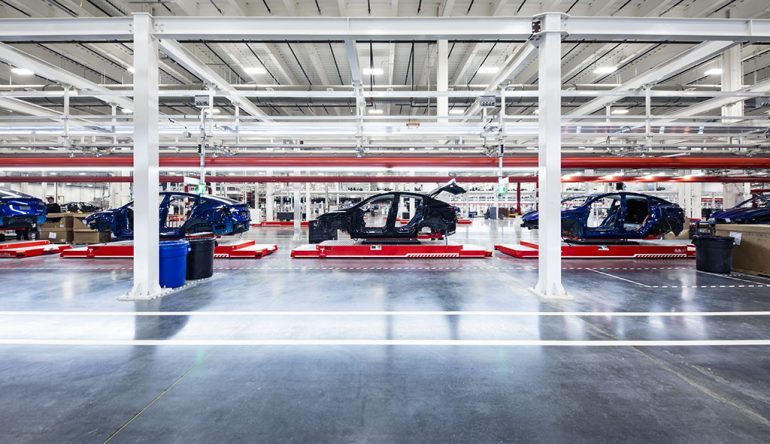
The electric vehicle (EV) industry, which had been accelerating at a rapid pace, is now encountering uncertainties that have sent ripples across major players, including Tesla, General Motors (GM), and Ford. This cautious approach to EV production expansion comes amidst economic uncertainties, and it underscores concerns about the future demand for electric vehicles.
Tesla, led by CEO Elon Musk, recently expressed its reservations regarding the expansion of electric vehicle production. Musk voiced concerns that elevated borrowing costs might price potential customers out of the market, despite substantial price reductions on Tesla’s offerings. As a result, Tesla is adopting a prudent approach, waiting for economic clarity before proceeding with its planned factory in Mexico. Musk explained his apprehension, stating that economic uncertainty makes consumers hesitant to invest in new vehicles. He cited concerns over “paycheck-to-paycheck” pressures on American workers and emphasized his reluctance to push forward with expansion in an uncertain climate.
Also, don’t forget that you can get discounted new car pricing with a free quote through qualified local dealer partners.
Musk’s comments have had significant repercussions, with Tesla’s shares dropping more than 4% in after-market trading. This comes after other automotive giants and electric vehicle startups have sounded warning bells in the industry. General Motors recently announced a one-year delay in the production of Chevrolet Silverado and GMC Sierra electric pickup trucks due to flattening demand for EVs. Ford, a Detroit peer, also opted to temporarily reduce its production by cutting one of three shifts at its plant manufacturing the electric F-150 Lightning pickup truck. In July, Ford already adjusted its EV strategy by shifting its investment focus toward commercial vehicles and hybrids.
The electric vehicle startup Lucid reported a nearly 30% decline in third-quarter production and only a marginal increase in deliveries, even after offering significant discounts, which has raised concerns about the demand for its luxury Air sedan. Similarly, Rivian, backed by Amazon and known for its electric pickup trucks and sport utility vehicles, disappointed investors by refraining from raising its full-year production forecast, despite stronger-than-expected third-quarter performance.
Tom Narayan, a global autos analyst at RBC Capital Markets, pointed out that the concerns over slowing EV demand are more related to pricing and affordability issues than a fundamental rejection of electric vehicles. He predicts this may be a temporary dip, which will improve as EV prices decrease and more affordable variants become available.
Automakers have made substantial investments in electric vehicle technology, and the industry’s fate depends on how the next few quarters unfold. These concerns about slowing demand are emerging just as companies are grappling with supply chain constraints that have disrupted production plans. In July, it was reported that the U.S. market was not growing fast enough to prevent unsold EVs from piling up at some dealerships.
To counteract potential waning demand, market leader Tesla, known for its industry-leading profit margins, has been the most aggressive in slashing prices, prompting other players to follow suit. However, Musk pointed out that rising interest rates, implemented to combat stubbornly high inflation, are offsetting the price reductions for consumers, making the shift away from gas-guzzling vehicles less feasible. Musk stated that if interest rates were to come down, he would accelerate the expansion of the Mexican factory. Unfortunately, this is not expected to happen in the United States until June 2024, based on current market estimates, as robust economic data suggests that the central bank might keep interest rates higher for an extended period.
Source: Reuters